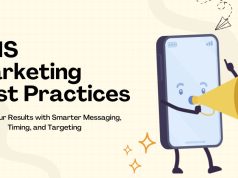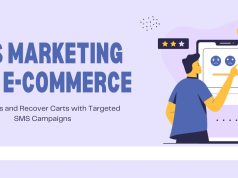Understanding the SMS Marketing Landscape
Before diving into sales tactics, it’s crucial to grasp the current state of SMS marketing. Mobile users check their phones 96 times per day on average, making text messages an incredibly direct communication channel. Unlike email, which often gets buried in crowded inboxes, SMS messages are typically read within three minutes of delivery.
The effectiveness of SMS marketing stems from its immediacy and personal nature. When a customer opts into text communications, they’re granting businesses direct access to their most personal device. This privilege comes with responsibility, but when executed properly, SMS campaigns deliver exceptional results across industries.
Modern SMS marketing platforms offer sophisticated features including automation workflows, personalization tokens, and detailed analytics. These capabilities transform simple text messaging into a powerful marketing automation tool that rivals more complex systems.
Identifying Your Ideal SMS Marketing Prospects

Not every business is ready for SMS marketing, and targeting the wrong prospects wastes time and resources. Successful SMS marketing implementations typically share several characteristics that make them ideal candidates for your services.
Retail businesses with physical locations represent prime prospects for SMS marketing. These companies benefit tremendously from location-based promotions, flash sales notifications, and appointment reminders. Restaurants, clothing stores, and service-based businesses like salons or auto repair shops often see immediate ROI from SMS campaigns.
E-commerce businesses with existing customer databases also make excellent prospects. Companies already collecting phone numbers through checkout processes or customer service interactions have a head start on building SMS subscriber lists. These businesses can leverage SMS for cart abandonment recovery, shipping notifications, and exclusive product launches.
Healthcare providers, fitness centers, and appointment-based businesses represent another lucrative prospect category. These organizations typically struggle with no-shows and last-minute cancellations, problems that SMS reminders solve effectively while improving operational efficiency.
Building Your SMS Marketing Sales Pitch
The foundation of any successful SMS marketing pitch rests on understanding your prospect’s current marketing challenges. Rather than leading with SMS features, begin conversations by exploring pain points around customer engagement, retention, or communication efficiency.
Start by asking targeted questions about their existing marketing efforts. How are they currently reaching customers? What challenges do they face with email marketing? How do they handle appointment scheduling or customer notifications? These questions reveal opportunities where SMS marketing provides clear solutions.
Present SMS marketing as a complement to existing efforts rather than a replacement. Many businesses fear that adding another marketing channel will overwhelm their team or confuse their messaging. Position SMS as an enhancement that amplifies their current strategies while filling communication gaps.
Use specific, relevant examples when presenting SMS marketing benefits. Instead of generic statistics, share case studies from similar businesses in their industry. A restaurant owner will relate more to another restaurant’s 40% increase in reservation confirmations than to abstract conversion rate improvements. Learn more about how SMS marketing works in different industries.
Addressing Common SMS Marketing Objections

Every SMS marketing sales conversation encounters predictable objections. Preparing thoughtful responses to these concerns demonstrates expertise and builds confidence in your recommendations.
The most frequent objection centers around customer privacy and opt-in concerns. Many business owners worry that SMS marketing feels too intrusive or that customers won’t want to receive text messages. Address this by explaining opt-in requirements and emphasizing the voluntary nature of SMS subscriptions. Customers who provide their phone numbers and consent to messaging want to hear from businesses they’ve engaged with.
Cost concerns often arise, especially from small businesses with limited marketing budgets. Combat this objection by focusing on ROI rather than absolute costs. SMS marketing typically costs less per message than email marketing when accounting for delivery rates and engagement levels. Frame pricing in terms of customer lifetime value rather than monthly fees.
Technical complexity represents another common barrier. Many business owners assume SMS marketing requires significant technical expertise or integration work. Highlight user-friendly platforms with simple setup processes and emphasize ongoing support availability. Offering to handle initial campaign setup can remove this obstacle entirely. Check out our guide on SMS marketing automation workflow templates to see how simple setup can be.
Demonstrating SMS Marketing ROI
Nothing sells SMS marketing more effectively than concrete examples of financial returns. Develop a portfolio of success stories that showcase measurable results across different business types and campaign objectives.
Focus on metrics that matter to business owners: revenue attribution, customer retention rates, and operational efficiency improvements. A spa that reduced no-show appointments from 25% to 8% through SMS reminders demonstrates clear operational value. An e-commerce store that recovered $50,000 in abandoned cart revenue through SMS sequences shows direct financial impact.
Create before-and-after scenarios that illustrate potential improvements. If a prospect currently relies solely on email marketing with 20% open rates, show how SMS campaigns with 98% open rates could amplify their reach. Use their existing customer database size to project potential SMS subscriber growth and associated revenue increases.
Provide conservative estimates rather than overly optimistic projections. Credible ROI projections build trust and set realistic expectations for campaign performance. Underpromising and overdelivering strengthens long-term client relationships.
Structuring Your SMS Marketing Service Packages
Successful SMS marketing sales require clear, actionable service packages that address different business needs and budget levels. Avoid overwhelming prospects with too many options while ensuring you can accommodate various requirements.
Create a foundational package that includes essential SMS marketing components: platform setup, basic automation workflows, and monthly campaign management. This entry-level option should provide immediate value while leaving room for expansion as clients see results.
Develop an intermediate package that adds advanced features like segmentation, A/B testing, and detailed analytics reporting. This tier appeals to businesses with more sophisticated marketing needs or those ready to scale their SMS efforts.
Offer a premium package that includes comprehensive strategy development, advanced automation sequences, and dedicated account management. This option attracts larger businesses or those viewing SMS marketing as a critical growth channel.
Consider industry-specific packages that address unique needs. Restaurant packages might emphasize reservation management and loyalty programs, while retail packages focus on inventory alerts and sales promotions.
Closing SMS Marketing Deals

The closing phase of SMS marketing sales requires careful attention to timing and prospect readiness. Rushing toward a close before establishing clear value often results in lost opportunities or delayed decisions.
Look for buying signals that indicate readiness to move forward. Prospects asking about implementation timelines, requesting pricing details, or discussing integration requirements demonstrate serious interest. Questions about campaign performance measurement or subscriber acquisition strategies suggest they’re mentally moving beyond the decision phase.
Address final concerns directly before attempting to close. Ask if any questions remain about SMS marketing implementation or results. Unresolved concerns will surface later and potentially derail the sale.
Present clear next steps that make moving forward feel natural and low-risk. Offer pilot programs or trial periods that allow prospects to experience SMS marketing benefits without major commitments. These approaches reduce decision friction while demonstrating confidence in your services.
Implementing Successful SMS Marketing Campaigns

Winning SMS marketing sales is only the beginning of successful client relationships. Proper implementation ensures campaign success and creates opportunities for account expansion and referrals. You can get a complete roadmap in our how to start SMS marketing guide.
Start with comprehensive audience analysis to identify the most promising subscriber segments. Understanding customer demographics, purchase behaviors, and communication preferences enables more effective campaign targeting from launch.
Develop content calendars that balance promotional messages with value-added communications. Pure sales messages quickly lead to subscriber fatigue and opt-outs. Mix promotional content with helpful tips, exclusive insights, or early access to new products or services.
Establish clear performance benchmarks and reporting schedules from the campaign launch. Regular performance reviews demonstrate ongoing value and identify optimization opportunities. Transparent reporting builds trust and positions you as a strategic partner rather than just a service provider.
Scaling Your SMS Marketing Sales Success
As you gain experience selling SMS marketing services, focus on developing systems and processes that enable consistent growth. Document successful sales approaches, objection responses, and implementation strategies to streamline future efforts.
Build relationships with complementary service providers who can refer qualified prospects. Web developers, social media managers, and email marketing specialists often encounter clients who could benefit from SMS marketing services. Reciprocal referral relationships expand your prospect pipeline while providing value to partner networks.
Invest in case study development and client testimonials that strengthen your sales presentations. Video testimonials from satisfied clients provide powerful social proof that overcomes skepticism and builds confidence in your recommendations.
Maximizing Long-Term SMS Marketing Client Value
Successful SMS marketing sales extend far beyond initial campaign launches. Focus on strategies that maximize client lifetime value while delivering exceptional results that justify ongoing investment.
Regular strategy reviews help identify new opportunities for SMS marketing expansion. Clients who start with basic promotional campaigns often benefit from advanced automation sequences, loyalty programs, or integration with other marketing channels. These expansions increase monthly recurring revenue while deepening client relationships.
Stay current with SMS marketing platform developments and industry best practices. New features, compliance requirements, and strategic approaches emerge regularly. Positioning yourself as an expert resource for ongoing optimization creates additional value and strengthens client retention.
Monitor industry trends that create new SMS marketing opportunities. Changes in consumer behavior, platform capabilities, or regulatory requirements often reveal fresh applications for text message marketing. Proactive clients about emerging opportunities demonstrates strategic thinking and positions you as a valuable business partner.
Building Your SMS Marketing Sales Foundation
Learning how to sell SMS marketing effectively requires understanding both the technical capabilities and business applications of text message campaigns. Success comes from focusing on client outcomes rather than platform features, addressing concerns proactively, and delivering measurable results that justify ongoing investment.
The SMS marketing industry continues evolving as new technologies and consumer preferences emerge. Businesses that embrace text message marketing now gain competitive advantages in customer communication and engagement. For marketing professionals, mastering SMS marketing sales opens doors to lucrative service opportunities with strong client retention potential.
Start by identifying businesses in your network that could benefit from SMS marketing services. Practice your pitch with friendly prospects who can provide feedback without sales pressure. Build your confidence and refine your approach before pursuing high-value opportunities.
Remember that successful SMS marketing sales focus on solving business problems rather than selling services. When you position SMS marketing as a solution to specific challenges like customer retention, appointment no-shows, or engagement gaps, prospects see clear value in your recommendations.
While SMS marketing is an incredibly effective channel for direct communication, it works best when integrated into a broader digital marketing ecosystem. If you’re working with online retailers or DTC brands, consider exploring a full suite of digital strategies tailored for e-commerce businesses. Our in-depth resource, E-Commerce Marketing Solutions to Accelerate Your Online Store’s Growth, outlines proven tactics for increasing traffic, boosting conversions, and building brand loyalty through a mix of paid media, SEO, email, and more.
Frequently Asked Questions (FAQ)
Is SMS marketing still effective in 2026 and beyond?
Yes. SMS remains one of the highest-performing marketing channels due to its immediacy, high open rates, and personal nature. As automation, personalization, and two-way messaging evolve, SMS is becoming even more powerful rather than obsolete.
How often should businesses send SMS messages?
Frequency depends on the industry and customer expectations, but most successful campaigns limit messages to one to four per month unless they are transactional or event-driven. Over-messaging leads to opt-outs, while thoughtful timing improves engagement.
Do customers really want to receive marketing text messages?
When customers opt in knowingly and receive relevant, valuable content, they often prefer SMS over email. The key is permission-based messaging and delivering clear benefits such as exclusive offers, reminders, or timely updates.
What types of businesses benefit most from SMS marketing?
Retail, e-commerce, restaurants, fitness centers, healthcare providers, service-based businesses, and appointment-driven industries see particularly strong results. Any business with repeat customers or time-sensitive communication needs can benefit.
How long does it take to see results from SMS marketing?
Many businesses see measurable results within the first few campaigns. Appointment reminders, flash promotions, and abandoned cart messages often generate immediate ROI, making SMS one of the fastest channels to prove value.
Is SMS marketing expensive compared to other channels?
While there is a per-message cost, SMS often delivers higher ROI due to superior engagement and response rates. When measured against revenue impact and customer retention, SMS is frequently more cost-effective than email or paid ads.
Can SMS marketing be automated?
Yes. Modern platforms allow full automation, including welcome sequences, reminders, re-engagement flows, and behavior-triggered messages. Automation increases efficiency while maintaining personalization at scale.







